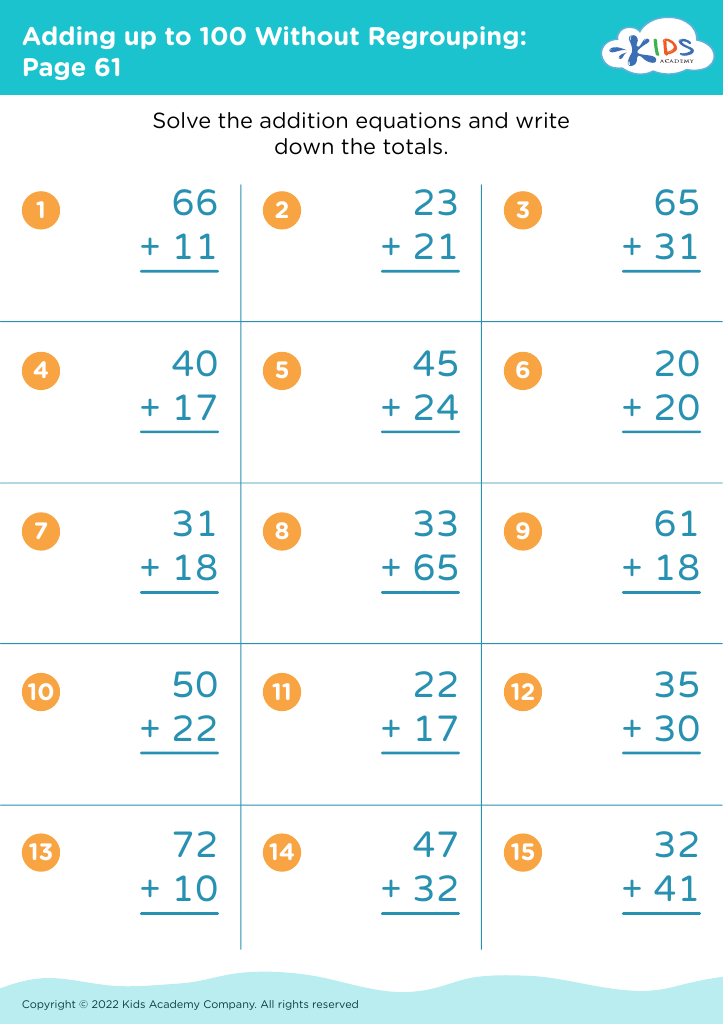Understanding division Addition Worksheets for Ages 5-8
5 filtered results
-
From - To
Explore our comprehensive "Understanding Division Addition Worksheets" designed specifically for kids ages 5-8. These engaging resources help young learners grasp the fundamental concepts of division and its relationship to addition. Through fun activities and colorful visuals, children will develop their understanding of how division splits numbers into equal parts. Each worksheet encourages critical thinking, promotes number sense, and builds a solid mathematical foundation. Ideal for classroom use or at-home practice, our worksheets are perfect for enhancing early math skills in a playful and interactive way. Start your child's mathematical journey today with these essential learning tools!
Understanding division and addition is crucial for children aged 5-8, as it forms the foundation for their mathematical understanding and problem-solving skills. At this developmental stage, children are like sponges, eager to absorb new concepts, and mastering these operations can set them up for future academic success.
Addition is often a child's first encounter with mathematical concepts, teaching them how to combine quantities, which relates to everyday situations like counting objects or sharing snacks. Proficiency in addition boosts confidence and enhances cognitive skills, making it easier for students to tackle more complex mathematics later on.
Division, conversely, helps children understand the concept of sharing or grouping. It introduces them to the idea of equal distribution, problem-solving, and the relationship between numbers, deepening their comprehension of addition, as division is essentially finding out how many times a number can fit into another.
By focusing on these operations, parents and teachers can encourage a love for math, fostering critical thinking and logical reasoning. Engaging in activities that build these skills not only enhances academic performance but also cultivates resilience and perseverance, characteristics essential for lifelong learning and personal growth. Therefore, investing time in these fundamental concepts is vital for early childhood education.



























